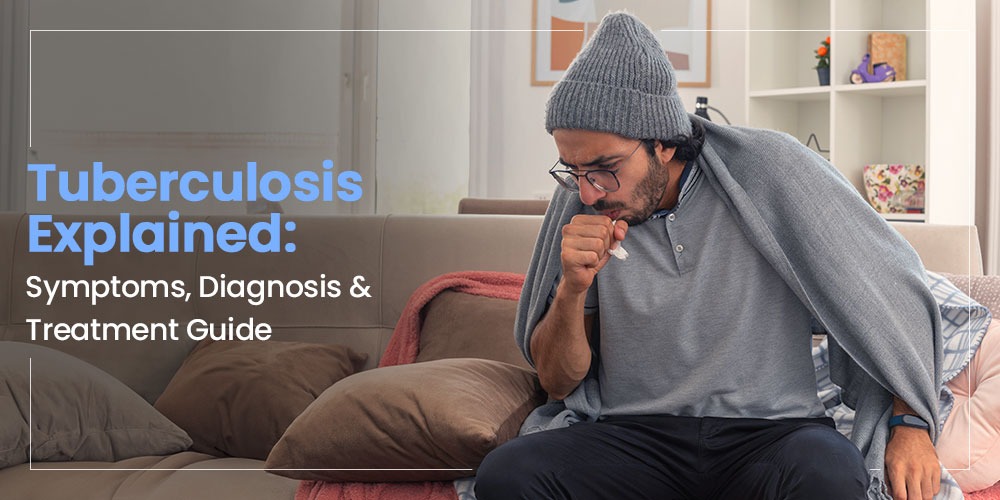Tuberculosis (TB) is a persistent infectious disease caused by Mycobacterium tuberculosis. This disease primarily affects the lungs but can spread to other organs such as the kidneys, spine, or brain. It is transmitted through the air when an infected person coughs, sneezes, speaks, sings, or laughs. While it was once the leading cause of death in the U.S. during the early 20th century, TB is still a significant global health concern, responsible for over a million deaths worldwide each year.
Signs and Symptoms of Tuberculosis
Tuberculosis can manifest in various ways, depending on the stage of the infection and the organs affected. The symptoms of active TB in the lungs often include:
- Persistent cough lasting for over three weeks, often producing phlegm or blood.
- Discomfort or pain in the chest area, especially when breathing or coughing.
- Feeling excessively tired or weak, even with adequate rest.
- Experiencing intense sweating, particularly during sleep.
- Episodes of fever, often accompanied by chills.
- Significant reduction in hunger, leading to weight loss.
- Difficulty in breathing, especially during physical exertion.
- In cases where TB affects organs other than the lungs, such as the kidneys or brain, additional symptoms may occur. TB of the spine can lead to back pain or neurological symptoms if it affects the brain.
Causes of Tuberculosis
Mycobacterium tuberculosis, responsible for TB, spreads through the air when an infected person releases respiratory droplets. Individuals are at higher risk of contracting TB if they:
- Have Close Contact: Spend time indoors with someone who has active TB.
- Live in or Travel to High-Risk Areas: Regions where TB is more prevalent, such as parts of Asia, Africa, or Eastern Europe.
- Are Immunocompromised: Weakened immune systems due to conditions like HIV/AIDS, diabetes, or cancer treatments.
- Work in Healthcare Settings: Increased exposure to TB-infected patients.
- Have Unhealthy Habits: Smoking, excessive alcohol consumption, or drug abuse.
Diagnosis of Tuberculosis
Diagnosing TB involves a combination of tests to detect the presence of the bacteria and assess the extent of the infection. Common diagnostic procedures include:
- Tuberculin Skin Test: Also known as the Mantoux test, a small amount of fluid is injected into the skin, and a positive reaction indicates exposure to TB.
- Blood Tests: Interferon-gamma release assays (IGRAs) can detect the body’s immune response to TB.
- Chest X-ray or CT Scan: Imaging tests to look for lung abnormalities or other affected areas.
- Sputum Analysis: Examining samples of mucus coughed up from the lungs for the presence of TB bacteria.
- MTBSure – Mycobacterium Tuberculosis Real-Time PCR Kit– MTBSure is an in vitro diagnostic kit used for precise detection of tuberculosis DNA in human sputum samples through real-time PCR.
It’s important to note that these tests can determine if someone has been exposed to TB or has an active infection.
Treatment of Tuberculosis
TB is treatable with antibiotics but requires a rigorous and prolonged treatment regimen. The choice of medications and duration of treatment depends on factors such as the type of TB and the individual’s overall health. Treatment strategies include:
- Latent TB Infection:If diagnosed with latent TB, individuals may receive medications such as ison-iazid, rifam-pin, or rifa-pentine for several months to prevent the infection from becoming active.
- Active TB Disease: A combination of antibiotics, including eth-ambutol, iso-niazid, pyr-azine-na-mide, and rifa-mpin, is typically prescribed. Treatment lasts at least six to nine months to ensure the complete eradication of the bacteria.
- Drug-Resistant TB: In cases where the TB bacteria are resistant to standard antibiotics, alternative medications may be used, often for a more extended period.
- It is crucial for individuals undergoing: Failure to complete the full course of antibiotics can lead to the development of drug-resistant strains of TB.
Early detection is essential in controlling the spread of TB and preventing severe complications. Individuals should seek medical attention if they experience symptoms of TB, especially if they have been in contact with someone diagnosed with the disease.
Read our blog about eradicating Tuberculosis in India

